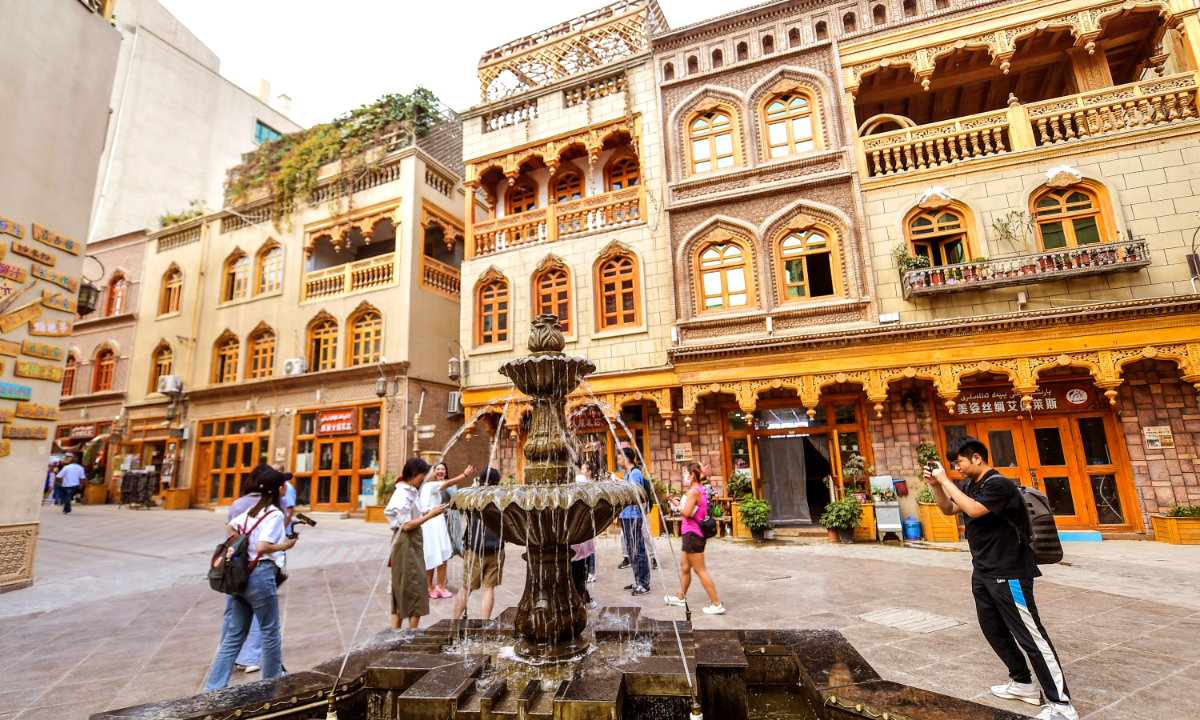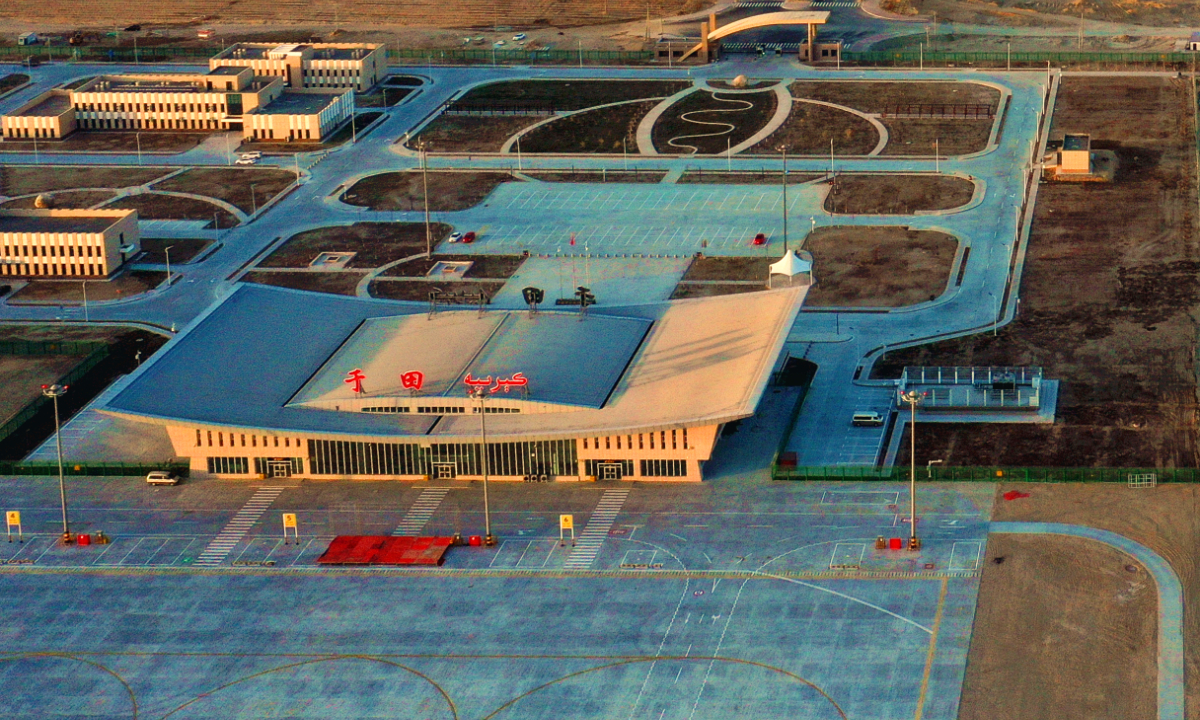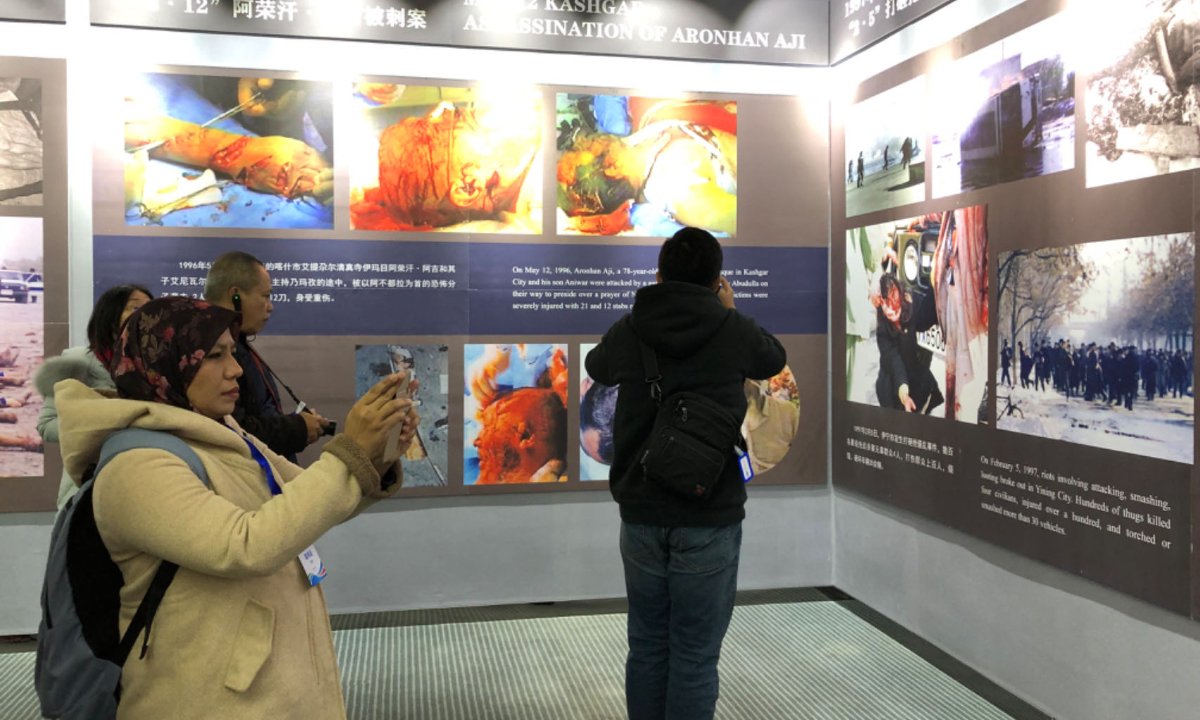Editor's Note:
Terrorism is mkthe common enemy of humanity. Incomplete statistics show that from 1990 to the end of 2016, separatist, terrorist and extremist forces launched thousands of terrorist attacks in Northwest China's Xinjiang Uygur Autonomous Region. Behind these terrorist attacks are innocent people whose lives have been shattered by these evil acts. Their experiences are marked by bloodshed, tears, resentment, and regret. What lasting impacts and trauma did these attacks inflict upon them? How do they perceive and cope with the scourge of terrorism?
Starting from 2021, the Institute for Communication and Borderland Governance (ICBG) at Guangzhou-based Jinan University conducted a research project titled "Victims and Survivors of Terrorism in China: An Oral History" to record the stories of these victims. To date, they have conducted interviews with over 60 witnesses of violent terror incidents that have taken place throughout the Xinjiang region, including Hotan, Kashi, Turpan, and Urumqi, collecting over 1 million words worth of written records and over 90 hours of audio and video materials.
The first installment of the report on the project was released on January 18, 2024 at a seminar. The second installment was released on Friday. The Global Times has selected two stories from the report and also interviewed Zhang Liang, director of the ICBG, who heads the project, to understand the significance of the report.
This story is also a part of the Global Times' "Witness to History" series, which features first-hand accounts from witnesses who were at the forefront of these historic moments. From scholars, politicians and diplomats to ordinary citizens, their authentic reflections on the impact of historical moments help reveal a sound future for humanity through the solid forward steps taken in the past and the present.

Tourists visit Hotan, Northwest China’s Xinjiang Uygur Autonomous Region, on September 4, 2023. Photo: VCG
Terrifying moment in a chess room"It never occurred to me that I would personally experience a terrorist attack. I thought nobody would harm me if I didn't offend others," said Luo Huarong, a 59-year-old resident from Hotan prefecture in Xinjiang. Luo was the owner of a chess room located on Yingbin Road in Hotan. At around 17:45 on June 15, 2014, three machete-and-axe-wielding terrorists broke into the chess room and attacked innocent patrons.
Armed patrol officers arrived after only one minute and 20 seconds, and with the help of others already at the scene, they brought the three terrorists under control. Two terrorists died from serious injuries, and one was captured with injuries. Four people were injured in the fight, but escaped without life-threatening injuries.
When the terrorists entered the chess room, Luo was sitting behind the door. "I saw two men entering my chess room. I believed that I had never seen these two men before. They stood there and watched people playing mahjong. After a while, they took their axes out from behind their arms, and they began to hack people."
An older man in the room told other people to pick up stools to resist quickly and people in the room used whatever was available to combat the terrorists. Many tried to run upstairs and locked the door between the first and second floor.
Unfortunately, when the attack happened, some people in the chess room were not aware of the incident and still watching others playing cards. They didn't run upstairs until it was too late and there was no place to escape.
"To be honest, I was scared at that time. I was thinking, should I find a place to hide or run away? Later, when people started to fight back, I panicked. I couldn't find anything to help me fight because I was shocked then," Luo said.
When two terrorists went to other rooms in search of more victims, Luo slid downstairs, ran to a nearby store and tried to call the police. But she did not expect there was a third terrorist outside the chess room acting as a lookout.
Luo later realized that the terrorists didn't intend to leave anyone alive and they wanted to kill all the people inside. "The one terrorist outside was waiting at the door and would kill everyone who escaped from the chess room. When I ran out, the terrorist took one strong hack at me. I saw the axe. When he attacked me, he raised the axe so high that I felt like he wanted to kill me in one strike. Although I ran away after being struck, I lost my mind for a moment," said Luo. There is a noticeable scar on her arm.
After regaining her consciousness, Luo rushed into a neighboring store where several people came to her aid. After a while, when she came out, she saw several people pinning the terrorists on the ground.
Luo was admitted to hospital for one week.
Following the incident, Luo transferred ownership of the chess room to another party and did not know whether it was still there.
"I never went back there again. It is a sad place for me, and I don't want to see it again. It is the place that brought us disaster. It's better not to go there. I don't want to think of that scene anymore," Luo stated.
While talking about her perception of terrorism, Luo said that she can't understand why these criminals engage in such evil acts. "Now I am wondering, are those who engaged in terrorist attacks being deceived? What they had done was wrong… I hope that they [terrorist attacks] will never happen again. I hope that our country remains peaceful, and the public remains secure. When I watch news about wars, no matter where they take place, I only wish that they would be ended as soon as possible," said Luo. "Peace is the best thing."

Yutian Wanfang Airport in Hotan, Xinjiang Photo: VCG
Never forgive themAbutursun Tohti, a 44-year-old farmer from Akeqige village of Hotan, was playing cards with several close friends in the chess room when the terror attack took place on June 15, 2014. When the terrorists rushed into the chess room, Abutursun didn't pay much attention to them.
"There are three tables in the room, and they [terrorists] stood in the middle. All of a sudden, they took out their machetes and axes and began to attack us. I was the first one to be struck… They came from behind to hack me… I didn't even feel that they had struck my neck. I just felt the warmth of blood on my neck… and then I kept bleeding," Abutursun recalled.
Amidst the chaos, Abutursun was pushed out and saw a man who ran downstairs and tripped over himself on the stairs was then attacked by the terrorists. Abutursun then covered his neck, quickly running to a clinic next to the chess room to find a doctor to treat his wound. But the doctor told him his blood vessels in the neck had been cut in half.
"I was bleeding heavily… Two, three, maybe four, or five minutes later, when I came out from there [the clinic] to go to the People's Hospital, the police came and brought the chaotic scene under control. An acquaintance of mine recognized me, and he took me to the hospital to have my wound sewed up. After my surgery, I was sent to a ward, where the stitches were reopened and re-sewn. I stayed in the hospital for about 10 days," Abutursun said.
Abutursun didn't tell his family about what happened to him as he did not want to scare his mother. He only called one of his brothers, who came over to take care of him.
"I'm not afraid of [terrorist attacks]. There's no reason to be scared of them. If I hadn't been injured so badly that day, I would find a stick to attack them after I got my wound treated," said Abutursun.
"I will never forgive those terrorists. No human being will ever forgive them! If you hurt others, you will face retribution sooner or later," Abutursun said, noting that what the terrorists have done to people is so awful, while they were also ruining their own future.

A group of foreigners visit the anti-terrorism exhibition in Urumqi, Xinjiang, in February 2019. Photo: Liu Xin/GT
History to be recordedWhen we returned to the chess room in 2021, it had been transformed into a grocery store, surrounded by new buildings and greenery - a stark contrast to the horrifying incident in 2014. The scene is also a poignant reminder of the preciousness of our current peaceful life, Zheng Liang, director of the ICBG, who initiated the project, told the Global Times.
The project documenting the experiences of terrorism victims holds significant meaning. Zheng said that for a long time, the West has deliberately overlooked China's efforts in combating terrorism, and even alleged that terror attacks were fabricated by China to mask "oppression" against ethnic minorities.
These stories from victims who hail from various ethnic backgrounds, drenched in blood and tears, debunk these long-standing disinformation. Yet, the West still turns a deaf ear to the cries of these victims, illustrating their unchanged double standards against China, Zheng said.
Through oral history, the project aims to reveal the reality of what happed in Xinjiang and the immense efforts made by local governments and residents of all ethnicities in achieving stability amidst ongoing counter-terrorism efforts, Zheng emphasized, noting that more reports from the project are forthcoming.
Terrorism is a common enemy of humanity, impacting every country. Zheng stressed that applying double standards or using related topics for geopolitical games undermines global efforts in combating terrorism. He called on certain countries to abandon such double standards and collaborate with China and the international community in the global anti-terrorism efforts.



